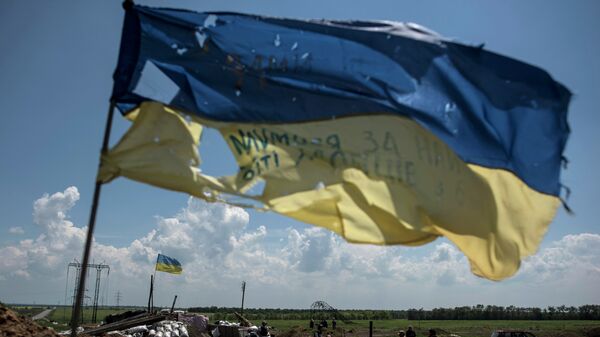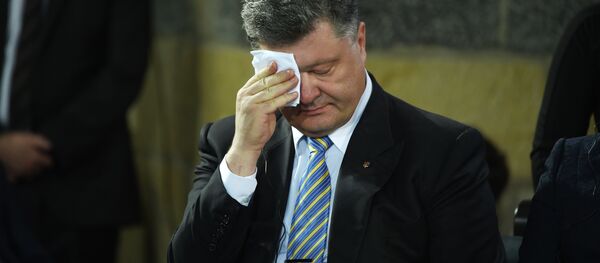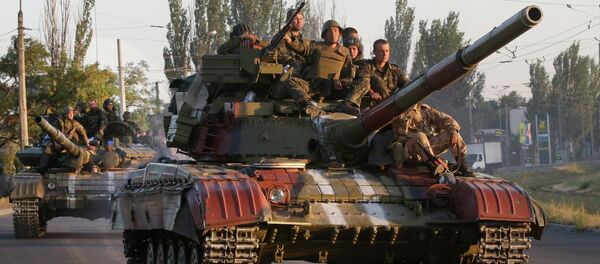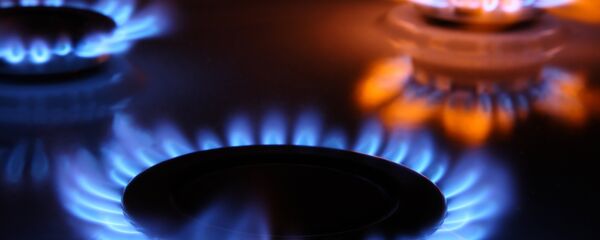On August 24, 1991, Ukraine's parliament passed a declaration of independence; after the collapse of the Soviet Union Ukraine was freed from Soviet debts (this burden was borne by Russia) and given the green light to independent economic development.
It should be noted that at the moment of the USSR's collapse Ukraine was the richest among the former Soviet Republics; over twenty four years Ukraine turned into Europe's poorest state. Ukraine has obviously failed to fulfill its great economic potential due to internal political struggle, mismanagement and wavering between East and West.
From 1991 to 2015 five presidents were at the helm of the independent Ukrainian state.
Leonid Kravchuk (1991-1994) served as the first president of Ukraine. When the USSR started to crumble, Kravchuk pushed for Ukrainian independence. He counted on the West and substantially messed up relations with Russia. For instance, the relations between Russia and Ukraine deteriorated due to the controversial Black Sea Fleet "partition" and the Crimean issue.
Meanwhile, Ukraine suffered from corruption and financial hardships: its traditional political and economic ties with former the Soviet republics were broken. The country had to build its new financial system from scratch. As a result, Ukraine spiraled into hyperinflation.
The situation had improved under the rule of Leonid Kuchma (1994-2004). The Ukrainian leader conducted a multi-vector foreign policy, cooperating with both Russia and the West. The country's economy began to revive after a prolonged recession, the country's currency — the hryvnia — was introduced and new national Constitution adopted.
The Orange Revolution of 2004, backed by the West, ushered in a new era of cooling of Russo-Ukrainian relations. Viktor Yushchenko, supported by the West, hijacked the elections and became the third Ukrainian president. However, in 2008 Ukraine faced a significant economic slowdown. By 2009 its GDP slid by 15 percent while the Ukrainian Central bank devalued the hryvnia twice and Ukraine's external debt began to grow. Furthermore, a Russo-Ukrainian gas conflict of 2009, instigated by Kiev, put Russia's gas deliveries to Europe in jeopardy.
However, the February coup of 2014 has nullified the modest achievements of the Ukrainian economy under Yanukovich. Today, after a year and a half since the coup, when democratically-elected Ukrainian president Viktor Yanukovich was ousted by Washington-backed ultra-nationalist forces, the country is teetering on the brink of bankruptcy.
The signing of the widely-discussed EU Association agreement postponed by Yanukovich and approved by the Poroshenko government has not facilitated the Ukrainian economy's growth.
In 2014 the Ukrainian economy sank by 6.8 percent against 2013, the inflation rate has risen by 25 percent, while the hryvnia's value has been cut in half. Meanwhile the country's national debt increased to $72 billion. Indeed, the International Monetary Fund's loans delayed the collapse, but have not mended the country's financial situation.
According to World Bank data, over the past 24 years Ukraine's real GDP has slid by 35 percent. This negative trend is the worst in the world.
According to some modest estimates, Ukraine needs about $97 billion for ten years to rebuild its aging infrastructure and boost economic growth.
However, while earlier in August Ukraine avoided a technical default by paying off a $120 million Eurobond coupon, in September Kiev has to repay $500 million and the specter of default is looking more than real.
The Ukrainian government's unwillingness to mediate the situation in Donbass — to recognize the right to self-rule for the Donbass republics, establish a federal state — is only adding fuel to the fire.
It is still unable to predict what the future has in store for Ukraine.






